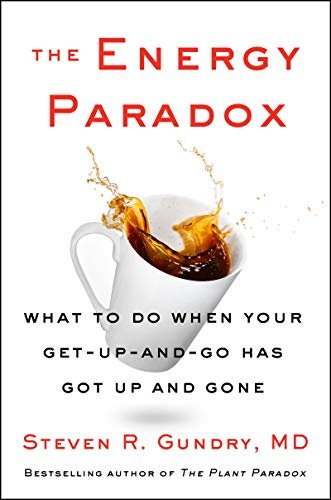Blog Post 4
The Energy Paradox by Steven R. Gundry, MD - An annoying controversy.
“Tiredness- starts where you can control it - your gut”.
So I’ve been listening to this audiobook recently on the mind-gut connection; a neurological and physiological foundation to how we think, feel, sleep and produce energy. In his book, ‘The Energy Paradox’, physician Steven R. Gundry explores within this topic, his controversial opinions on the surprisingly detrimental effects of “healthy” foods on the microbiome and how people in Western countries - with a diet of overly-processed foods - can maximise their energy levels when their “get up and go - has got up and gone,” (Gundry S.R).
This controversy has sparked rightfully so, as the author’s ideas completely oppose almost every socially and educationally-imposed norm when it comes to dieting. For example, he emphatically demonises bread, wheat, potatoes, rice, brown rice, quinoa, tomatoes, eggplant, yoghurt and even milk - all products that most believe to not only be healthy, but be essential for a balanced, whole-food diet.
Steven Gundry’s first point is that a shorter (8-12 hour), daily eating window as a form of intermittent fasting is the key to allowing more ATP to be used by you, rather than in your bodily processes. The most significant of these processes is the conversion of nutrients into ATP via glycolysis. He explains how our tendency to eat continuously throughout the day - with multiple meals and snacks in between - puts way too much pressure on your mitochondria when digesting it all. He compares it to rush-hour in a traffic jam; your working mitochondria can’t keep up with the food coming in, so they utilise more energy or store some nutrients as fat for later on. If you’re someone who thinks they eat well, albeit still experience fatigue - this could be why, “if you’re eating healthy, but too frequently - you’re setting yourself up for energy drain,” (ibid.).
In concordance with this time-restricted eating window, the author claims that the fasting period, being 12-16 hours a day, is when you will have the most energy - besides when you’re sleeping of course. This is due to the increased availability of ATP for processes other than digestion, such as working out or learning/cognitive focus. In Gundry’s suggested eating window of 12-8pm, this looks like your mitochondria requiring less energy to digest your midday meal with no extra intake until 3-4pm and then a final meal at 6-8pm. By spreading out your meals, there is less pressure on your mitochondria, meaning much of the ATP generated can be exerted by you, all the while you are getting the same amount of nutrients you need - just in a lesser number of sittings.
Overall, Steven R. Gundry makes of paramount importance, the idea that the body has the most energy when in a fasted state and by continuously eating bits and snacks, will keep your mitochondria slaving away - leaving less energy for you.
I will finish the book now, and come back to explore why “scientists and dieticians” claim that Gundry’s findings are mere “pseudoscience,” (Juna Xu).
Bing bong, bye!
Riley C.
References:
The Energy Paradox - Steven R. Gundry, MD
Everything to know about Dr Gundry
Other Posts You May Enjoy :)




